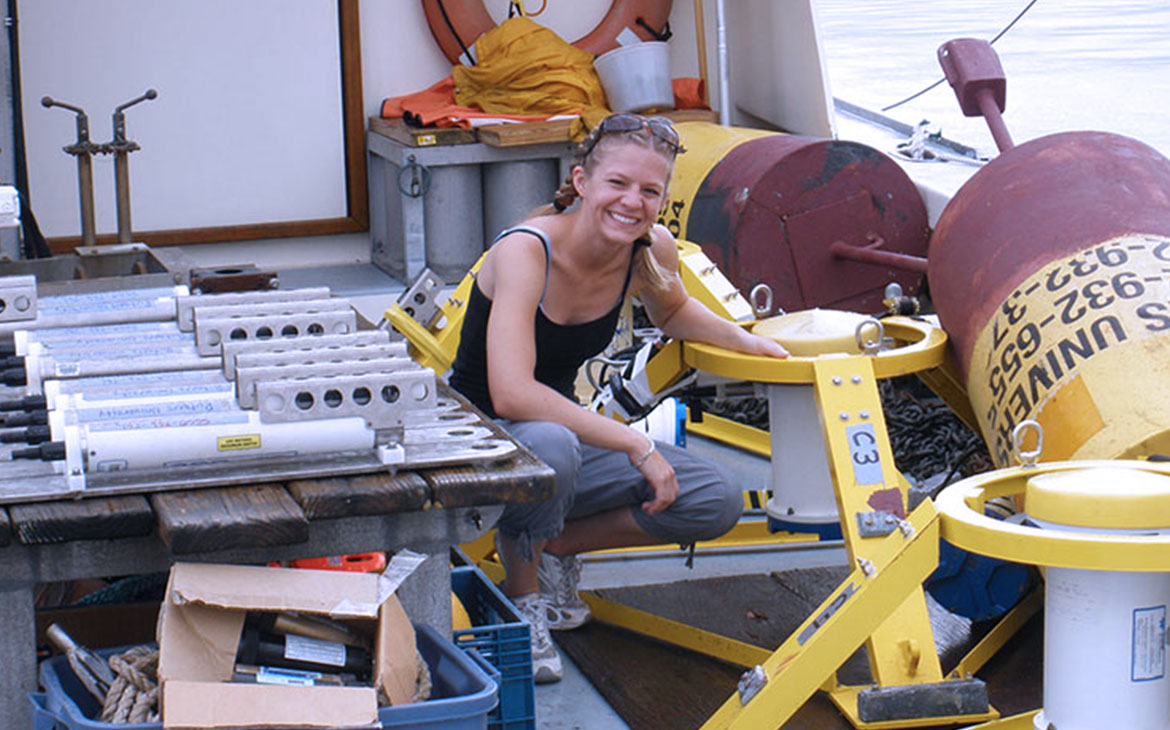As a 2012 NSF Graduate Research Fellow, Jacqueline McSweeney will be developing a comparative project to study sediment transport and consequent effects on productivity in the Alvarado lagoon-estuary and the Delaware estuary – 2 radically different systems. This project will expand upon work that Jacqueline began in 2010 that investigated how sediment transport and suspension in the highly eutrophied Delaware estuary serves as a light-limiting and thus production-limiting factor. Observation and modeling data has so far illustrated the importance of sediment in moderating productivity in the Delaware, and it would be valuable to evaluate whether this dynamic is critical in fundamentally different systems. Thus, she will be working to further develop a coupled sediment/bio-optical ROMS model to improve robustness and prepare for application in the Alvarado. Over the next few years, Jacqueline McSweeney will also be involved with observation and fieldwork in the Veracruz, Mexico to collect data for model verification. Collaboration with researchers at the University of Veracruz is an important component of this project, and a secondary goal of this project is to broaden interactions with the American and Mexican oceanographic communities.
The National Science Foundation’s Graduate Research Fellowship Program (GRFP) helps ensure the vitality of the human resource base of science and engineering in the United States and reinforces its diversity. The program recognizes and supports outstanding graduate students in NSF-supported science, technology, engineering, and mathematics disciplines who are pursuing research-based master’s and doctoral degrees at accredited US institutions. The NSF welcomes applications from all qualified students and strongly encourages under-represented populations, including women, under-represented racial and ethnic minorities, and persons with disabilities, to apply for this fellowship.

